In this article
Service dogs perform a wide range of invaluable work that helps people live more independent lives. The Americans With Disabilities Act (ADA) defines and protects the rights of service dogs and their handlers. Dogs that fit under the ADA’s requirements are all recognized as service dogs.
The road for a service dog requires extensive training, as dogs must learn to consistently perform specific tasks successfully. Here’s what you can expect if you’re interested in training your dog to become a service dog.

Before You Start: Qualifications of a Service Dog
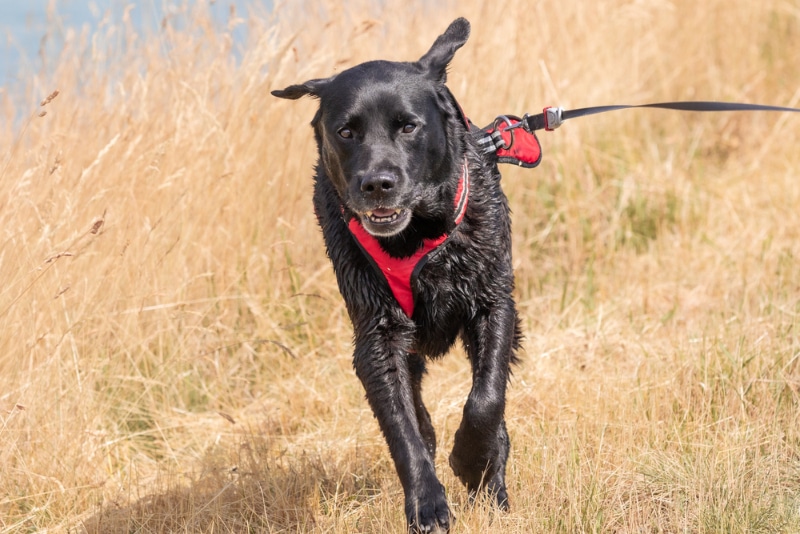
According to the ADA, service dogs can be any breed and size, and they must be trained to perform at least one task that’s related to their handler’s disability. Some of the work that service dogs engage in includes assisting with tasks that are difficult for handlers, becoming seeing-eye dogs, or specializing in therapy work.
While any dog can become a service dog, some breeds are more popular than others because of their size and temperament. Labrador Retrievers and Golden Retrievers are among the most popular breeds for service dog work because of their intelligence, trainability, and size. German Shepherds, Poodles, Bernese Mountain Dogs, and Great Danes are also popular candidates.
It’s also important to clearly establish the type of work your dog will be trained to do. Inadequate training in their work or task will disqualify them from being a service animal protected under the ADA.
1. Socialization
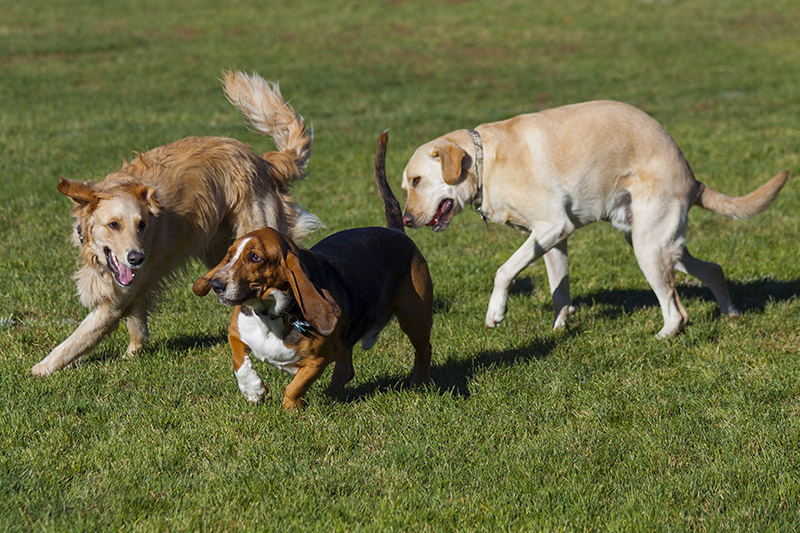
Since service dogs will accompany their handlers everywhere they go, it’s important to socialize them and expose them to a wide variety of environments. Along with getting used to being in new environments, dogs must learn to remain calm when they’re around other animals. This is why dog breeds with naturally strong prey drives aren’t commonly trained to become service dogs.
Early socialization increases the chances of success, so make sure to start taking your puppy to different places. Start with pet-friendly areas, like parks, pet stores that allow dogs, and your friends’ homes. Take them to puppy socialization classes so that they can meet other puppies and learn to have healthy interactions with them. A veterinarian can also give you guidance on how to properly socialize your dog.
If you need to speak with a vet but can't get to one, head over to PangoVet. It's an online service where you can talk to a vet online and get the personalized advice you need for your pet — all at an affordable price!

2. Obedience Training
While service dogs don’t have to complete a specific obedience training course, it’s highly recommended to provide formal obedience training for them. This is because service dogs must be well-behaved in all public settings. Businesses can request service dogs to leave their establishment if the dog isn’t house trained or is acting out of control. Therefore, it’s essential for service dogs to have a solid foundation in obedience training.
3. Teach Your Dog a Specific Task or Job
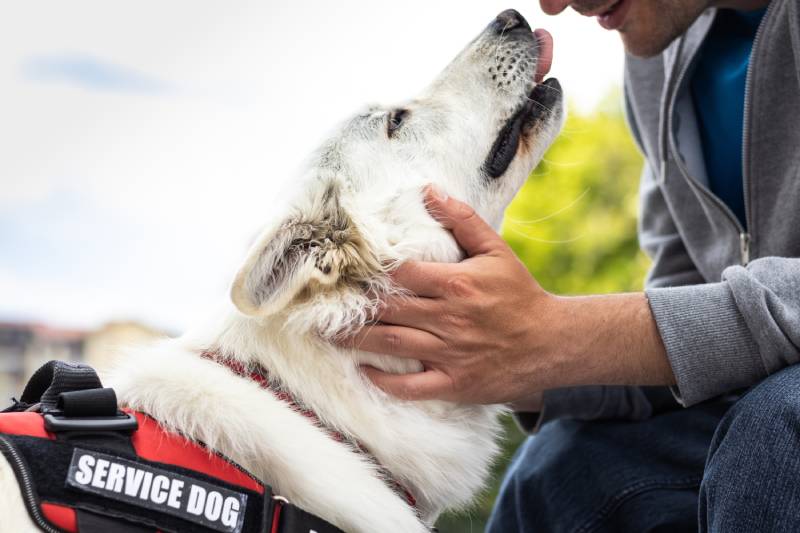
One of the main requirements for service dogs is that they must be able to perform a task that directly helps with their handler’s disability. The most common types of service dogs that the general public is aware of include seeing-eye dogs and hearing dogs. Service dogs can also help people with medical issues by alerting owners when seizures, diabetic or cardiac issues may occur and to remind them to take their medication.
Service dogs can also be trained for mental health and emotional support work. It’s common for them to help people with PTSD and can help alleviate anxiety, interrupt flashbacks, and wake people up from traumatic nightmares.
Once you identify the need and the task, it’s recommended that you consult a professional dog trainer. A dog trainer can help you come up with a training plan and help you track your progress with your dog.
4. Pass Training Certifications
While your dog isn’t required to pass any exams or tests, it’s highly recommended. You’ll be relying on your service dog, so it’s important to ensure they can complete their tasks consistently. Certification exams give greater assurance that your dog is up for the job and is a trustworthy companion. Common certification exams that are recommended for dogs include the AKC Canine Good Citizen, Community Canine, and Urban CGC tests.
5. Know Your Rights
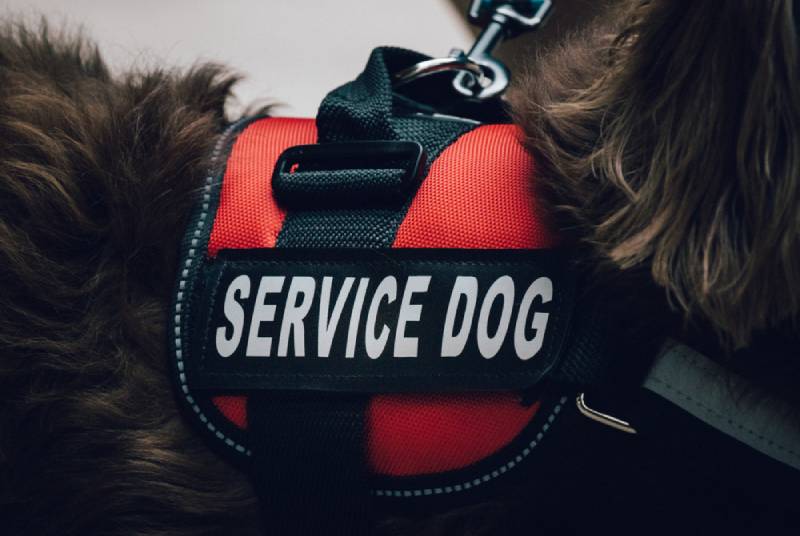
It’s important to have a good understanding of your service animal’s rights and your rights that are protected under the ADA. For example, businesses can’t ask dogs to perform their task or ask about the handler’s disability. However, they can ask if a service dog is required because of disability and what type of task they can perform.
Laws can vary slightly from state to state, so it’s important to see what your state requires for service dogs. For example, states can make it a requirement for all service dogs to be licensed and vaccinated. They may offer voluntary service dog registration programs, but handlers don’t have to add their service dogs to any registries.
Knowing your rights can help you navigate any issues that you may encounter when you’re outside your home. If you ever have questions, you can always visit the ADA website and request to speak with a representative.

Conclusion
Training a service dog requires a lot of preparation and work. Dogs must have a strong grasp of obedience training, and they must learn to perform a specific task that’s related to their handler’s disability. While service dogs aren’t required to be certified or listed in a registry, it’s still recommended for them to pass training certification exams and tests. This will ensure your service dog is able to complete their tasks reliably and provide the best help they can for their handler. If you need any help or have any questions, be sure to reach out to your veterinarian.
Featured Image Credit: Shine Caramia, Shutterstock
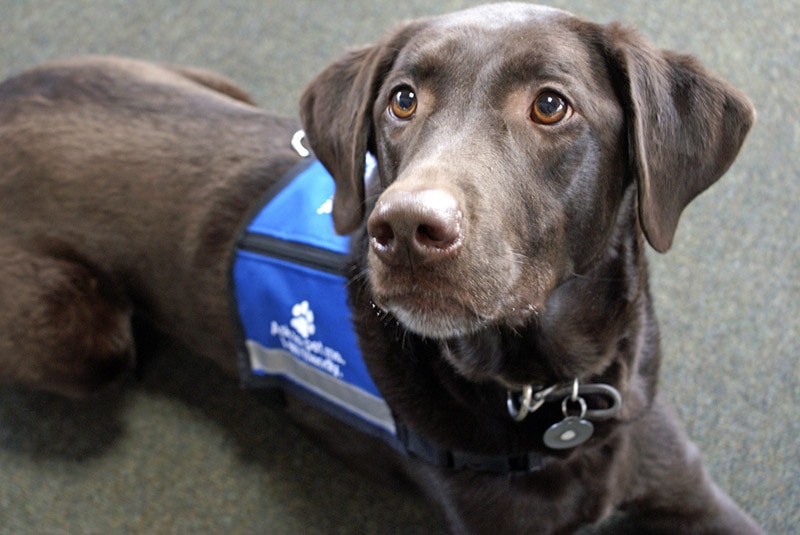





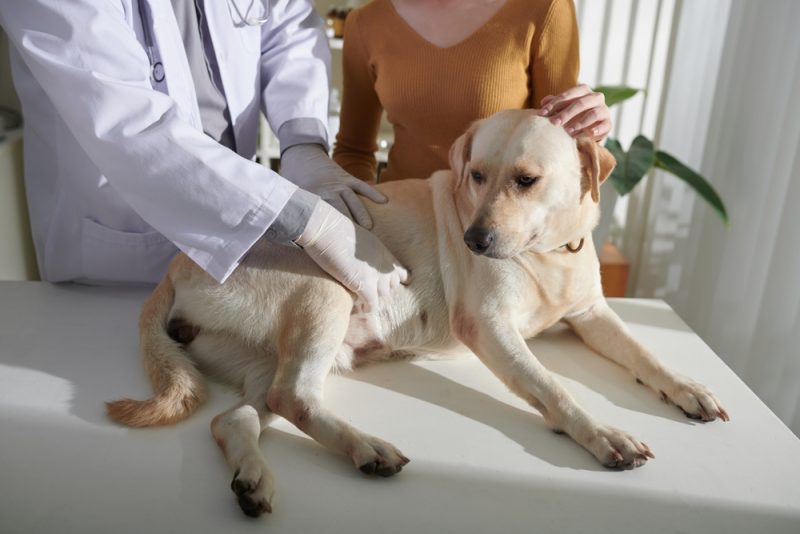





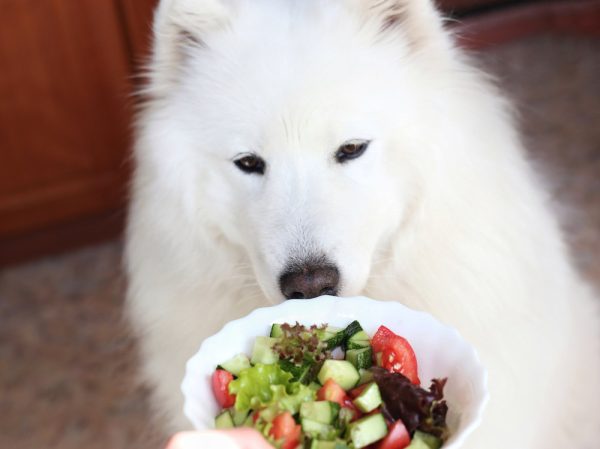






2 Responses
I have a 5 yr old Yorki/Chiua mix he is very laid back and I was wondering is he to old to train as service dog he is smart yet stubborn but he listens and will obey when push comes to shove